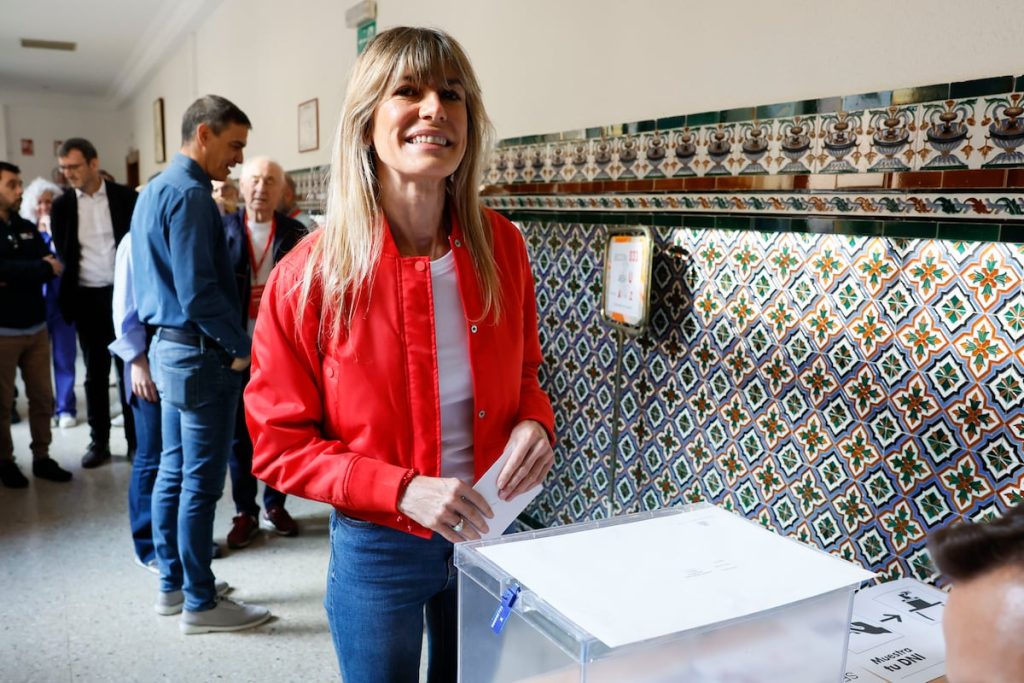The European Prosecutor’s Office has requested to be part of the investigation into the case involving Begoña Gómez, the wife of Spanish Prime Minister Pedro Sánchez. The EU organization that monitors fraud committed with public funds has sent a letter to the judge handling the case, Juan Carlos Peinado, to ask for part of the investigations. Although the prosecutors in Luxembourg have taken this step because they believe that EU budget funds may be involved in the case, it does not mean that any evidence of criminal activity has been found so far. Judge Peinado may choose to reject the European Prosecutor’s involvement, in which case the Spanish Supreme Court will have to resolve the jurisdictional conflict, as it did in the Koldo case. The European Prosecutor’s Office received a request from Manos Limpias earlier in the year to investigate Begoña Gómez’s collaboration with businessmen who have received public aid, sparking the preliminary inquiries into EU budget implications and the recent search of the Correos headquarters by the Civil Guard.
Up to this point, the Spanish Supreme Court has only resolved one jurisdictional conflict between Spanish courts and the European anticorruption prosecutor, established in 2017. The judge who presided over that case, Antonio del Moral, did not clarify whether the European Prosecutor’s jurisdiction must always prevail when claimed, potentially removing the case from the investigating judge. He explained that while the European Prosecutor has the discretion to exercise or not exercise jurisdiction over certain cases, it would be problematic to give a single actor the power to determine the competent court for trial, as it could infringe upon the right to a predetermined judge as established by law. Del Moral suggested that consultation with the Court of Justice of the European Union may be necessary to resolve any ambiguity that arises from the intricate and opaque regulations surrounding jurisdiction.
The case involving Begoña Gómez has dominated the final stretch of the campaign for the European elections. The news that Judge Juan Carlos Peinado has summoned her to testify on July 5th with her lawyer has set the tone for the political debate and campaign in the lead-up to the elections. The close proximity of the case to the political arena has heightened tensions and drawn significant attention from the public and media. This development has fueled debates and speculations about the implications for Prime Minister Pedro Sánchez’s government and the upcoming elections. With the case ongoing, the focus remains on the potential consequences and outcomes for all parties involved, shaping the political discourse and public opinion as the investigation unfolds.
In response to the European Prosecutor’s involvement in the case, there is uncertainty about the implications for the jurisdiction of the investigating judge and the overall legal process. The complexity of the European regulations and the potential for conflicting interpretations highlight the need for clarity and consistency in resolving jurisdictional conflicts between national courts and European entities. As the case continues to unfold, it may lead to further legal challenges and discussions about the balance of power and responsibilities between national and supranational judicial authorities. Ultimately, the resolution of this case may have broader implications for future investigations and cooperation between European and national prosecutors in combating fraud and corruption across borders.
The involvement of the European Prosecutor’s Office in the case of Begoña Gómez underscores the importance of international cooperation in addressing crimes involving public funds and corruption. By seeking to investigate potential fraud related to EU budget funds, the European Prosecutor’s Office demonstrates its commitment to upholding the rule of law and combating wrongdoing at the European level. The collaboration between national and European authorities in pursuing justice and accountability reflects the shared values and objectives of member states in the fight against financial crimes and corruption. As the case progresses and legal proceedings unfold, it will be crucial to maintain transparency, fairness, and adherence to legal principles to ensure a just and effective resolution that upholds the integrity of the judicial system and safeguards public trust in the rule of law.














